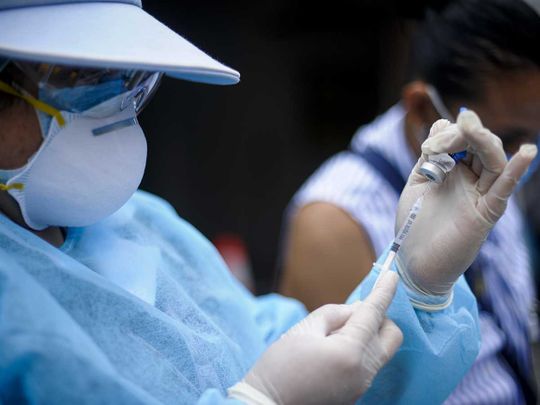
In the desperation to save lives in the coronavirus pandemic, we have already begun to relax scientific standards in the hope of finding a treatment without waiting to prove that it works.
Bioethicists have proposed risky human-challenge trials — which expose volunteers to the virus — to speed coronavirus vaccine development, and the Trump administration has already let one vaccine maker skip the usual requirement for animal safety trials before injecting an unproven vaccine into the arms of human volunteers.
The World Health Organisation has funded a trial of new drug therapies that shockingly has no placebo-control arm.
Multivaccine trials may be a solution
And, of course, the experimental and potentially dangerous use of hydroxychloroquine in COVID-19 patients already boasts the presidential seal of approval and has become commonplace in American hospitals.
The next scientific corner to cut is clear. Influential authors from the Coalition for Epidemic Preparedness Innovations recently wrote in The New England Journal of Medicine that “in a high-mortality situation, populations may not accept randomised, controlled trials with placebo groups.” While placebo-controlled multivaccine trials may be one solution, they wrote, another would be to skip the placebo.
This wouldn’t be the first time doctors took a chance on an unproven vaccine on a mammoth scale.
More than a million American schoolchildren were given an experimental polio vaccine that had never been subjected to the current gold standard of randomised placebo-controlled clinical trials. It was 1954 and children all across the country were losing the ability to walk. Or to breathe. It was an emergency, and faith in American scientific ingenuity was high.
Thankfully, the polio vaccine worked.
To honour their sacrifice, and to keep all of us safe, scientists must conduct large, placebo-controlled coronavirus vaccine trials.
Sixty years later, public expectations of the level of scientific evidence required to use vaccines and other treatments had increased — but then Ebola exploded out of jungles in West Africa. People were dying in droves, and the local public health infrastructure was in tatters.
Investigators plucked an unproven Ebola vaccine candidate called rVSV-ZEBOV from the shadows of scientific obscurity and tested it on thousands of Ebola-exposed human volunteers. There was no placebo-control arm of the trial because some thought that desperation made placebos unethical.
Ultimately the Ebola vaccine probably worked. At-risk volunteers who received the experimental vaccine early demonstrated less risk of contracting Ebola than later recipients. There was no placebo-control arm of the study, so certainty isn’t possible.
As the COVID-19 death toll mounts, it will be tempting to take our chances on another unproven vaccine. Yet there are life-threatening reasons we should not.
Unproven vaccines have real risks. The 1976 swine flu vaccine was linked to a rare paralytic neurological illness called Guillain-Barre syndrome, arguably fuelling vaccine mistrust that persists to this day. One novel HIV trial was stopped early because certain vaccine recipients became likely to be infected than placebo recipients. In trials of a vaccine against the syncytial respiratory virus, children who received the vaccine experienced enhanced disease that even lead to deaths. In each case, the immune response stimulated by the experimental vaccine was probably more harmful than helpful.
There is good reason to worry a coronavirus vaccine could elicit harmful immune responses too. Feline cousins of the coronavirus that causes COVID-19 are known to generate immune responses that can make infection worse.
A vaccine that triggers unhealthy immune responses and converts people with mild COVID-19 into people who can’t breathe would be catastrophic. Already overflowing intensive-care units would be even more overwhelmed, and shaky public trust in proven vaccines would surely be on life support as well.
I admire the brave volunteers who have already received experimental coronavirus vaccines. Like doctors and nurses, these volunteers are heroes who put their safety on the line for all of us. If given that opportunity, I hope I will have the same courage.
To honour their sacrifice, and to keep all of us safe, scientists must conduct large, placebo-controlled coronavirus vaccine trials.
Decades from now, when we remember the age of COVID-19, we’ll look back with pride on our grit and solidarity. We’ll tell stories of innovation and our mobilisation, not for war, but for good.
I hope we can also remember that we found our way through the darkness with science that people can trust.
— Tim Lahey is an infectious-disease physician and vaccine researcher who leads the ethics programme at the University of Vermont Medical Centre.








